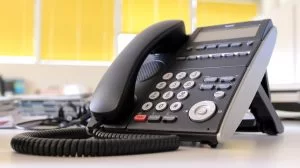Leaders are most effective when they talk privately and directly, and when they cite specifics. Let me explain.
Many years ago (and I do mean many years ago), I worked for a large national bank in their employee development department. My manager, Mary, was one of my all-time favorite managers, but like all managers, she occasionally made mistakes. This example was one of those times.
At a staff meeting, she told us to please limit our personal phone calls. Now, for those of you who remember the days of dinosaurs roaming the earth, this will make sense, but for those who grew up with Sesame Street and after, you will need some context.
In those days, people worked in offices, not cubicles. We had computers, but they were the size of microwave ovens. There wasn’t texting or cell phones, and while we did use email, most work was done via the phone. No one had a personal email address and no one had a computer in their home. In addition, there was long distance. When you made a phone call outside of your local calling area, you were charged by the minute. If your conversation lasted a long time, you were charged a lot!
So, when my manager Mary told us that we should stop making personal calls, I obeyed. (I was quite obedient early in my career!) Despite living in the local area, I stopped calling my husband, Bill, to tell him that I was on my way home. I stopped calling him to say “Have you made dinner or do you want me to pick something up?” If there had been a lottery and I had won it, I would have waited to get home before I told him. Needless to say, this was very inconvenient.
One day Mary asked me if I could work late. I didn’t mind at all, but I was concerned that Bill would be worried if I didn’t come home. I said, “I can stay late, but I do need to call my husband and let him know.” Mary looked at me as though I had lost my mind. “Well, of course you would call him!” she said. I replied, “I was just honoring your request not to make personal calls.”
Mary exclaimed, “That message wasn’t for you!” I reminded her that she told the staff that we shouldn’t make personal calls. Mary then explained that she had issued that request (demand) because Gabby (her real name) made personal calls to all of her relatives every morning and Gabby had racked up hundreds of dollars in phone bills, and that is what had to stop.
I asked Mary why she hadn’t just talked to Gabby directly. She responded that she didn’t want Gabby to feel bad. As a result, she miscommunicated her message and took a privilege away from the whole team, unnecessarily. This is an example of Less Nice, More Courage.
Leaders will be more effective when they talk privately and directly to each employee. When have you created a problem like this with you staff?






0 Comments